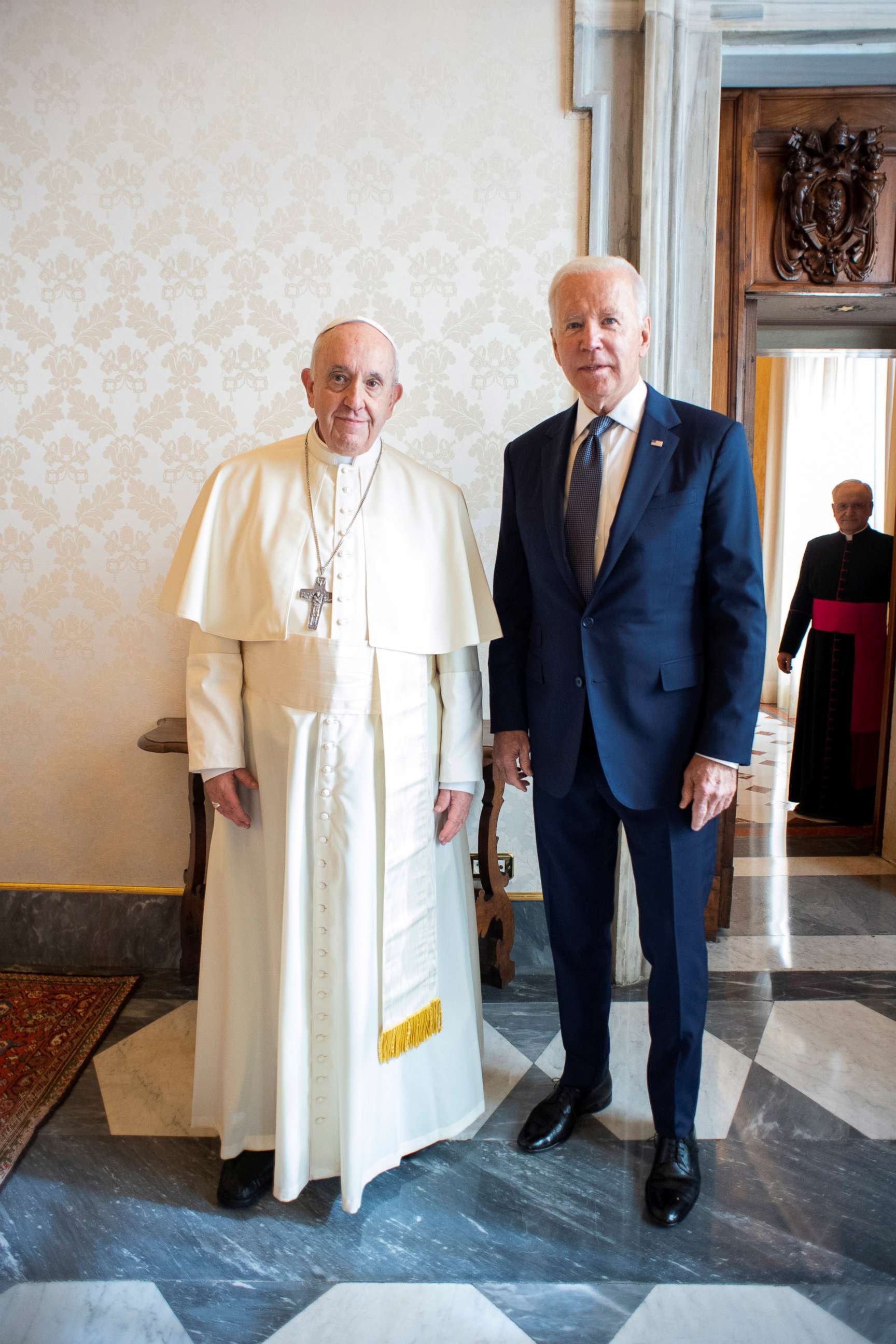Pope Francis' visit to Belgium has become a focal point of intense scrutiny and debate. As the leader of the Catholic Church, his words and actions are closely watched, especially in a country where the church's history is fraught with controversy. The visit has sparked reactions from various quarters, including political leaders and educational institutions, highlighting the complex relationship between the Vatican and Belgian society.
The Pope's journey to Belgium was anticipated with mixed emotions. While some view it as an opportunity for reconciliation and dialogue, others see it as a moment to address unresolved issues within the Catholic Church. This visit has brought to the forefront discussions on sexual abuse scandals, the role of women in the Church, and the broader implications of the Church's influence in modern society. Below, we delve into the details surrounding this significant event.
Leaders' Perspectives on Papal Visit
Belgium's Prime Minister Alexander De Croo delivered a notably pointed speech at the beginning of Pope Francis's visit. His remarks were unusually direct for diplomatic settings, reflecting deep-seated concerns about the Catholic Church's past actions. De Croo's speech underscored the need for accountability and transparency, setting a tone that would resonate throughout the Pope's stay in Belgium.
In addition to the Prime Minister's critique, King Philippe also voiced his concerns, particularly regarding the delayed response to sexual abuse allegations within the Church. His comments highlighted the royal family's stance on justice and reform, emphasizing the importance of addressing these issues promptly and effectively.
This dual criticism from both the Prime Minister and the King signifies a unified front from Belgian leadership, urging the Vatican to take decisive action against historical wrongdoings. Such public expressions of dissatisfaction are rare, indicating the gravity of the situation and the expectations placed on Pope Francis during his visit.
Women's Role in Society: A Contested Viewpoint
A Catholic university in Belgium publicly criticized Pope Francis for what they deemed as reductive views on the role of women in society. The institution expressed disappointment over the Pope's characterization of women primarily in terms of nurturing and caregiving roles. This critique reflects a broader societal push for gender equality and recognition of diverse contributions by women beyond traditional stereotypes.
The university's stance underscores the evolving expectations of religious institutions in contemporary times. It calls for a more inclusive and comprehensive understanding of women's roles within the Church hierarchy and society at large. Such criticisms serve as a reminder of the ongoing struggle for gender parity and the need for progressive reforms within religious organizations.
By voicing their concerns, the university not only challenges the status quo but also invites dialogue on how the Church can adapt to modern values while maintaining its core principles. This interaction between academia and religious leadership highlights the dynamic nature of societal change and the potential for growth through open communication.
Addressing Sexual Abuse Scandals
Pope Francis faced significant backlash over the handling of sexual abuse cases during his visit to Belgium. The issue remains a contentious topic, with many victims and advocates demanding swift and thorough investigations. The Belgian government and public have been vocal about the necessity for justice and reparations for those affected by such abuses.
During his interactions, Pope Francis met with 15 individuals who had suffered abuse at the hands of Roman Catholic clergy. These meetings were seen as crucial steps towards acknowledging past wrongs and fostering healing among survivors. However, critics argue that more substantial measures are required to ensure such atrocities do not recur.
The Pope's engagement with victims signals a commitment to confronting these painful realities head-on. Yet, the challenge lies in transforming these gestures into tangible policy changes that prevent future abuses and restore trust in the Church. This aspect of the visit underscores the delicate balance between symbolic acts and substantive action in addressing historical grievances.
Navigating Challenges in Diplomatic Terrain
Belgium, despite being central to European affairs, presents unique challenges for a papal visit. The nation's complex social fabric, marked by diverse cultural and religious influences, requires careful navigation. Pope Francis's announcement of his intention to visit in 2024 came amidst growing concerns about the Church's image and credibility.
Critics suggest that Belgium's socio-political landscape might pose difficulties for the Pope, given the heightened sensitivity around Church-related issues. The visit could either bridge gaps or exacerbate existing tensions, depending on how effectively the Vatican addresses local grievances. This context emphasizes the importance of strategic planning and sensitive diplomacy in executing such high-profile visits.
As Pope Francis continues his mission to engage with global communities, his approach in Belgium will serve as a critical test of his ability to navigate challenging environments. By balancing tradition with innovation, he aims to foster unity and understanding, even in the face of adversity. This endeavor highlights the enduring relevance of the papacy in shaping modern discourse on faith and society.

